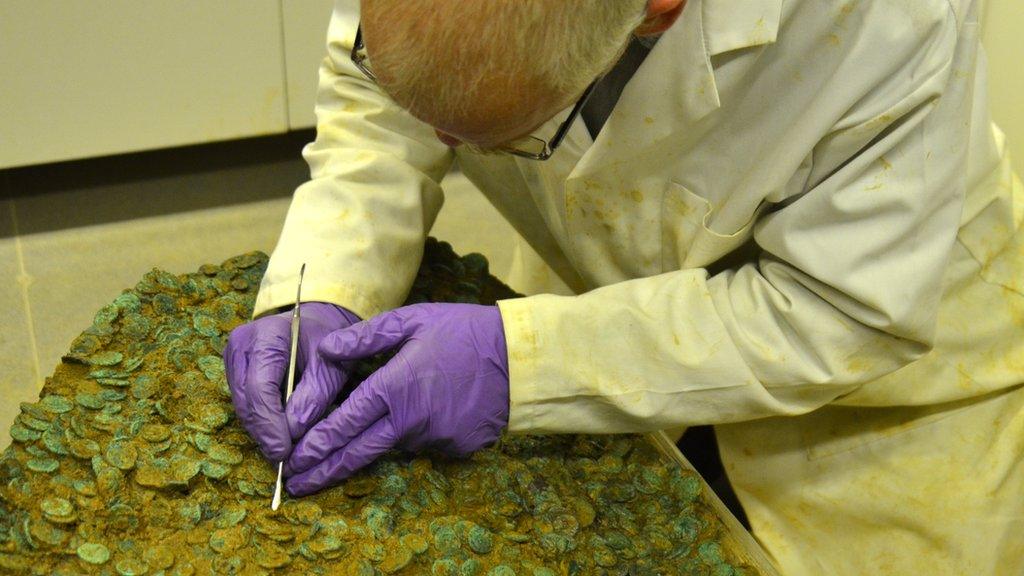Celtic coin hoard count 'overestimated'
- Published
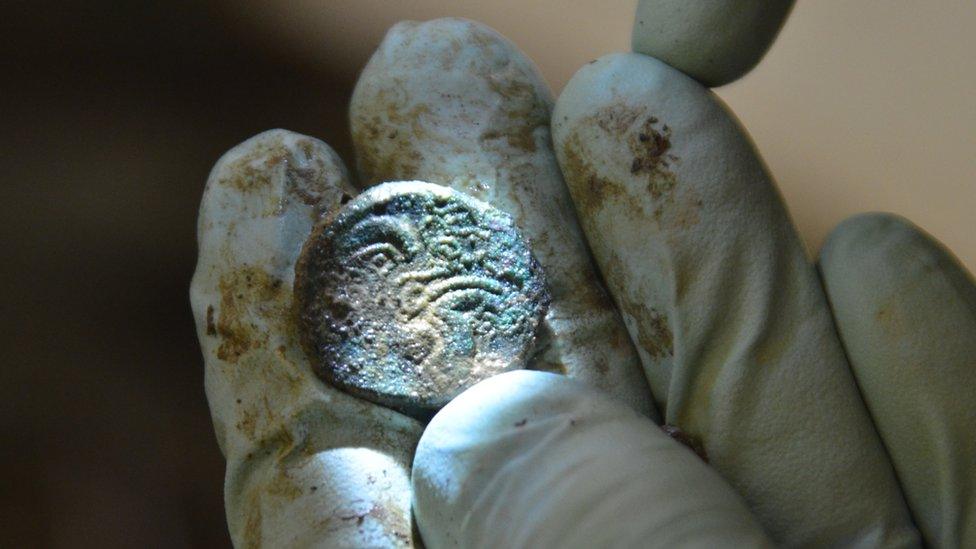
The hoard is thought to have belonged to a Curiosolitae tribe fleeing Julius Caesar's armies around 50 to 60 BC
The world's largest Celtic hoard has thousands fewer coins than the 70,000 originally predicted, according to the man responsible for studying it.
Neil Mahrer, senior conservator at Jersey Heritage, has led a team removing the coins from the large mound one by one for two years.
He said he expected it to be a "few thousand fewer".
The team are clearing the coins in view of the public in a special laboratory at La Hougue Bie Museum in Grouville.
Mr Mahrer said: "We worked out the estimate by the hoards volume and assumed it was just coins but we found much more jewellery than originally expected."
Even with 50,000 coins removed, the remainder of the Jersey hoard is still larger than any previously discovered

Iron age and Roman hoards
Hallaton treasure: 5,000 Iron age silver and gold coins and jewellery (found in 2000)
Staffordshire Hoard: The largest Anglo-Saxon gold and silver metalwork hoard. Over 3,500 items (found 2009)
Sutton Hoo: Anglo Saxon treasure featuring about 1,000 items including gold, garnet and weapons (found 1939)
Cuerdale treasures: From 9th Century, featuring more than 8,600 mainly silver items of Viking origin (found 1840)
Hoxne Hoard: Featuring nearly 15,000 gold and silver coins from late Roman Britain (found 1992)

Richard Miles, who along with Reg Mead discovered the hoard in a Jersey field in 2012, is working with the team.
"[It is] incredible to see all the coins and jewellery coming out, items that have not been seen for two thousand years," he said.
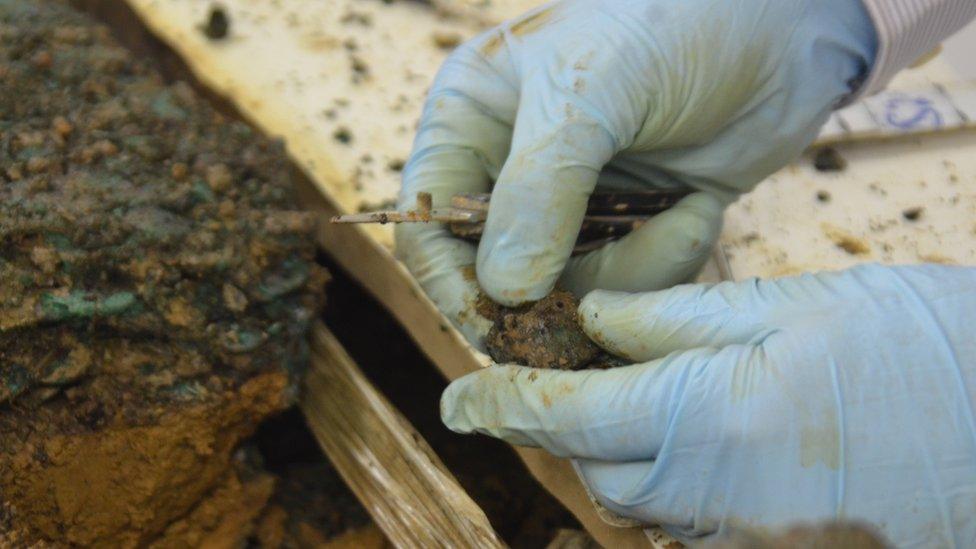
Some of the rarer coins are being left with the dirt arround them so they can be studied in context
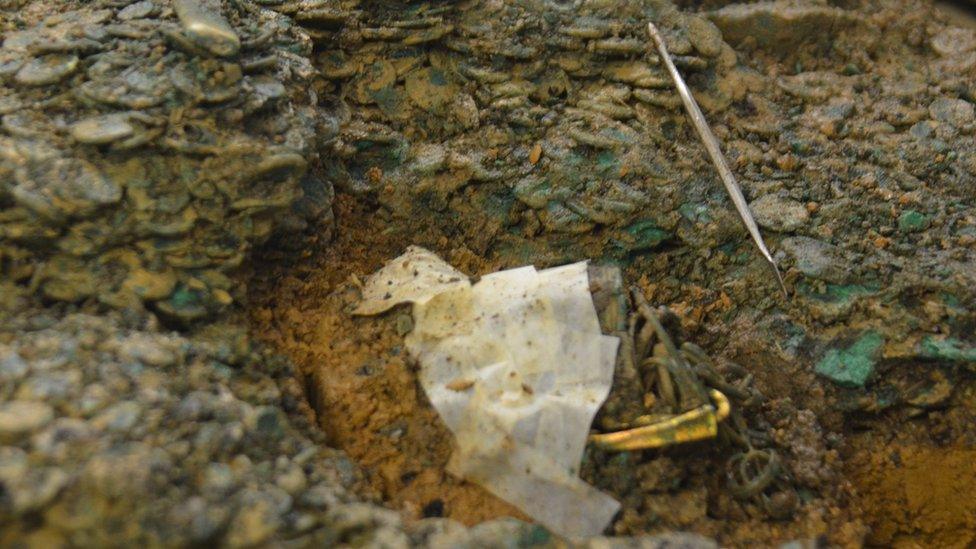
The team found a bag within the hoard that contains several items of gold jewellery
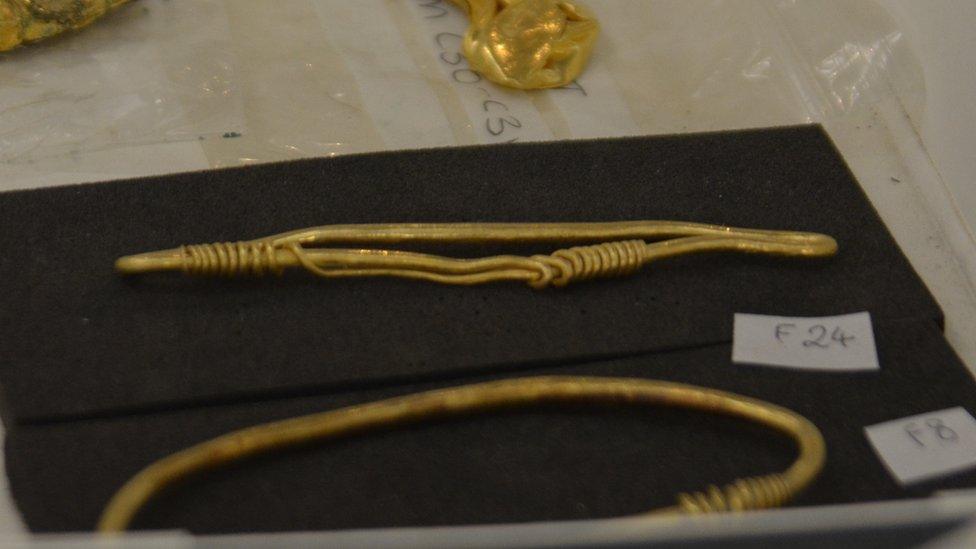
Some of the jewellery has come out intact
Mr Mahrer said they expect to finish the process of separating the coins in December.
The coins and jewellery will then be valued and it will then be up to the States of Jersey to decide if they want to purchase it.
Mr Miles said: "We, the landowner and everybody else wants this to stay in Jersey; we just need to find the means to keep this treasure in tact and keep it here."
How do you make an iron age Celtic coin?
- Published15 April 2016
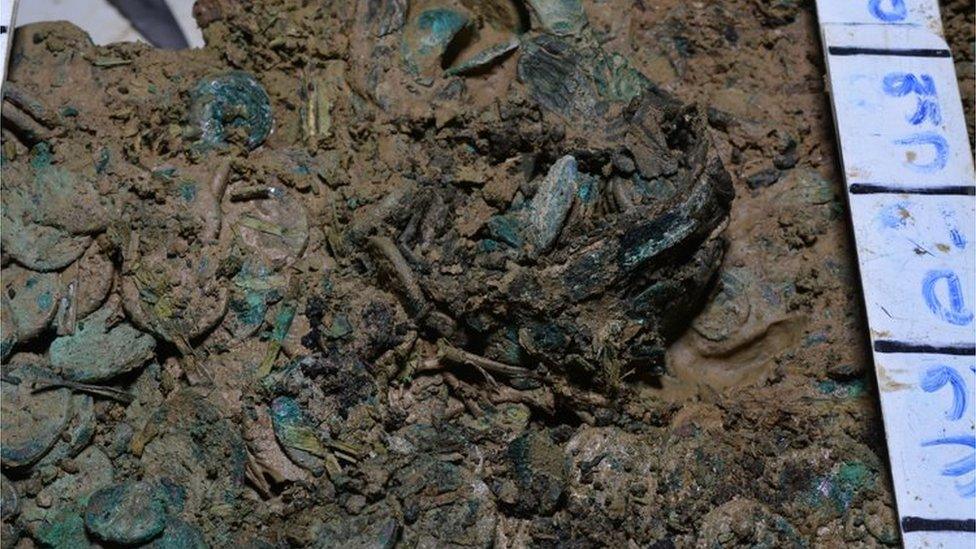
- Published24 November 2015
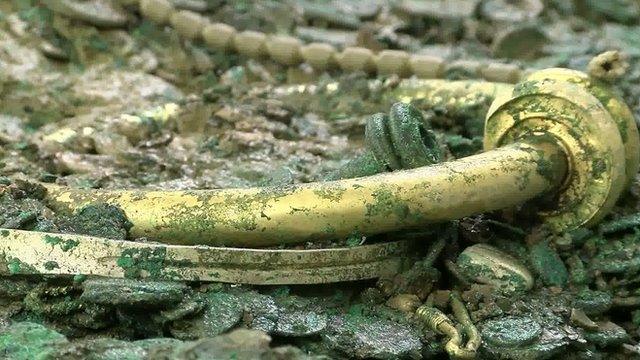
- Published24 November 2015
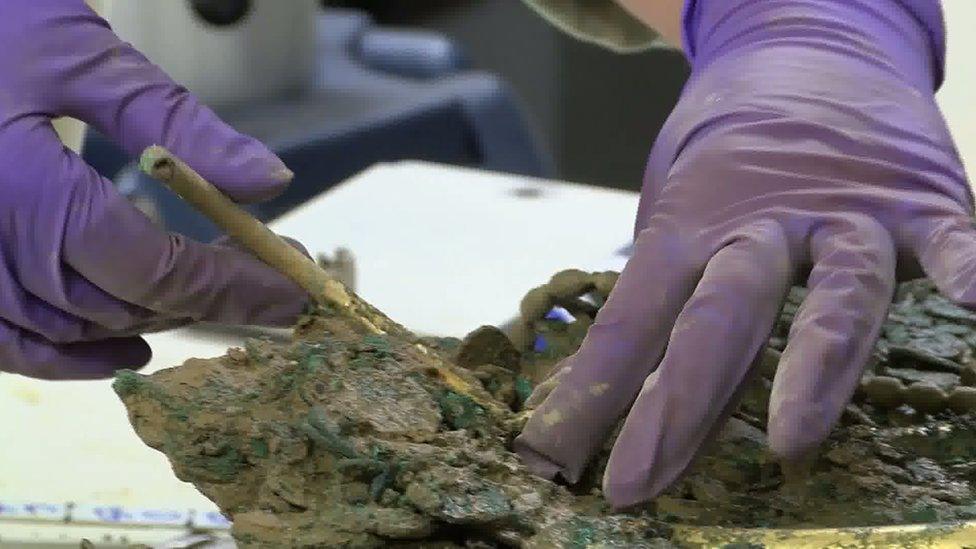
- Published13 September 2012
